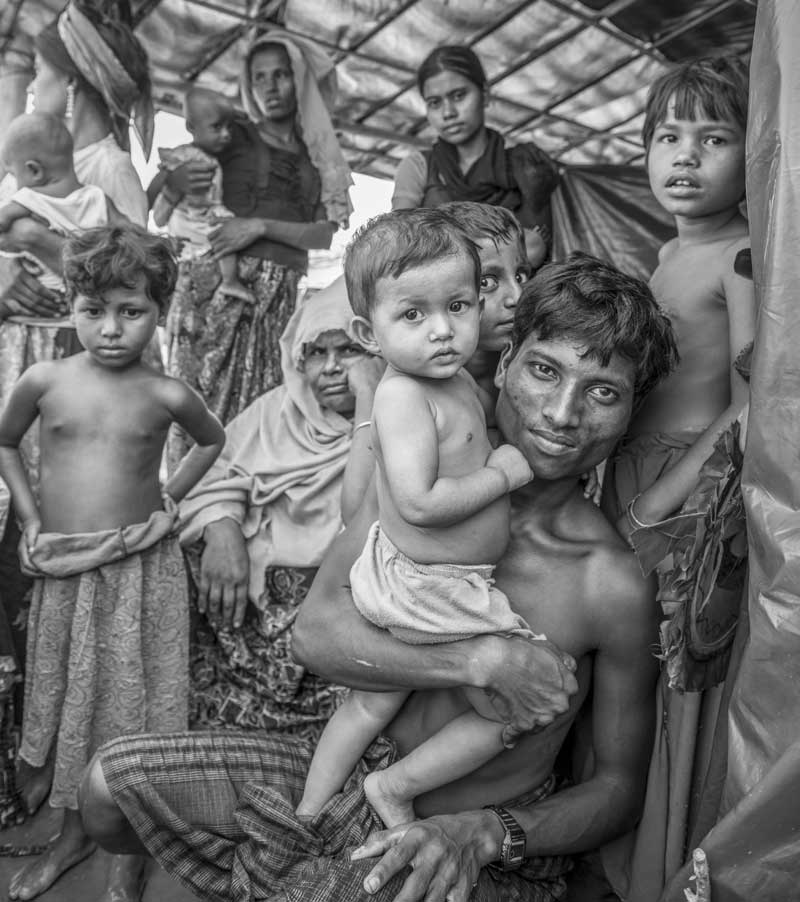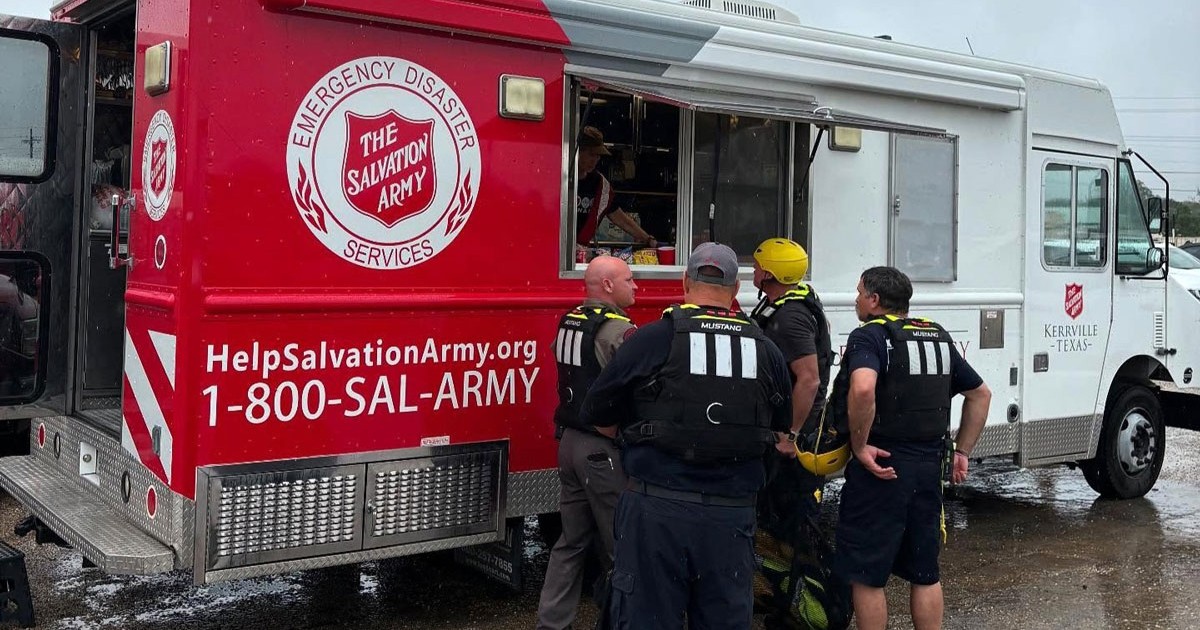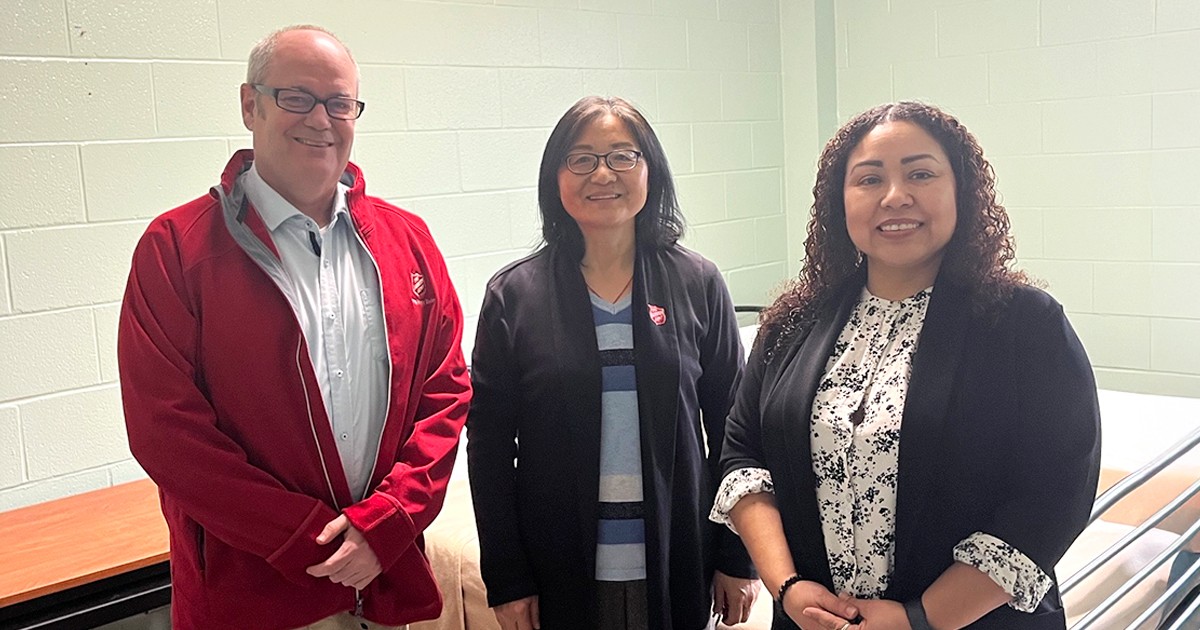Photo: Since last August, nearly 700,000 Rohingya—an ethnic and religious minority in Myanmar—have fled persecution, seeking safety in neighbouring Bangladesh
I, the Lord, love justice.”—Isaiah 61:8
I, the Lord, love justice.”—Isaiah 61:8
While much of the Bible says God loves it when individuals relate to each other justly, Isaiah 61 is addressed to a whole society. God will set oppressed people free, release captives, return plunder stolen by Israel’s enemies to its rightful owners and so on, because God loves social justice.
Perfect social justice is the fulfilment of the prayer that God’s kingdom would come on earth as it is in heaven. We need to pray and work for this. But for the present, the biblical priority is to detect and correct injustice. As Isaiah 58 records, the call to God’s people is “to loose the bonds of injustice … to let the oppressed go free, and to break every yoke” (Isaiah 58:6 NRSV). Jesus announced this as his mission, too (see Luke 4:16-21).
Today, the quest for social justice typically uses the language of human rights. Some Christians rankle at this because rights-talk seems like language that comes from secular politics rather than the Bible. However, the idea that everyone deserves a fair shake, that no one deserves to be enslaved, that it’s wrong to discriminate against people because of their sex or race or health status—these elements of social justice are central to the biblical message.
So, when the Universal Declaration of Human Rights says, “All human beings are born free and equal in dignity and rights,” Christians who believe Genesis 1:27 (“God created humankind in his image” NRSV) should applaud.
Thinking in terms of rights and social justice gets people thinking about power: How is power distributed in society? Who gets to have a say in what decisions are made? Who gets to have the final say?
Charity encourages us to think that the people who hold the resources should have the power to decide what and how much needy recipients get. Social justice encourages us to think of those who are needy in a different way. Social justice wants us all to see rich and poor, women and men, professionals and the unschooled, as fundamentally equal, and that everyone has a legitimate place at the decision-making table.
When we think of ourselves as having rights, we hold our heads high with dignity and refuse to think we are merely the object of society’s generosity. While rights-talk is not inherently adversarial, we know that in practice it often is. Some people claim to have rights and find that lots of others disagree. That can lead to violence. Those who believe their rights are being violated may be confrontational. Those who think they are not getting a fair share of society’s prosperity may oppose the government.
Christians are called to live at peace “so far as it depends on you,” says the Apostle Paul (Romans 12:18 NRSV). And so we rightly want to work hard to find amicable and just ways to avoid and resolve disputes. But at the same time, the Salvation Army spirit ignited by William Booth himself means that some things are worth fighting for.
Questions for Reflection:
• What do you think perfect social justice (God’s kingdom come) would look like?
• What forms of social justice are especially important for The Salvation Army to pay attention to now in our territory?
• What injustices does The Salvation Army need to repent of and apologize for?
• How could you tell if someone truly loved justice as God loves justice?
Dr. James Read is the director of The Salvation Army Ethics Centre in Winnipeg.
Feature photo: © Joel Carillet/iStock.com
Perfect social justice is the fulfilment of the prayer that God’s kingdom would come on earth as it is in heaven. We need to pray and work for this. But for the present, the biblical priority is to detect and correct injustice. As Isaiah 58 records, the call to God’s people is “to loose the bonds of injustice … to let the oppressed go free, and to break every yoke” (Isaiah 58:6 NRSV). Jesus announced this as his mission, too (see Luke 4:16-21).
Today, the quest for social justice typically uses the language of human rights. Some Christians rankle at this because rights-talk seems like language that comes from secular politics rather than the Bible. However, the idea that everyone deserves a fair shake, that no one deserves to be enslaved, that it’s wrong to discriminate against people because of their sex or race or health status—these elements of social justice are central to the biblical message.
So, when the Universal Declaration of Human Rights says, “All human beings are born free and equal in dignity and rights,” Christians who believe Genesis 1:27 (“God created humankind in his image” NRSV) should applaud.
Thinking in terms of rights and social justice gets people thinking about power: How is power distributed in society? Who gets to have a say in what decisions are made? Who gets to have the final say?
Charity encourages us to think that the people who hold the resources should have the power to decide what and how much needy recipients get. Social justice encourages us to think of those who are needy in a different way. Social justice wants us all to see rich and poor, women and men, professionals and the unschooled, as fundamentally equal, and that everyone has a legitimate place at the decision-making table.
When we think of ourselves as having rights, we hold our heads high with dignity and refuse to think we are merely the object of society’s generosity. While rights-talk is not inherently adversarial, we know that in practice it often is. Some people claim to have rights and find that lots of others disagree. That can lead to violence. Those who believe their rights are being violated may be confrontational. Those who think they are not getting a fair share of society’s prosperity may oppose the government.
Christians are called to live at peace “so far as it depends on you,” says the Apostle Paul (Romans 12:18 NRSV). And so we rightly want to work hard to find amicable and just ways to avoid and resolve disputes. But at the same time, the Salvation Army spirit ignited by William Booth himself means that some things are worth fighting for.
Questions for Reflection:
• What do you think perfect social justice (God’s kingdom come) would look like?
• What forms of social justice are especially important for The Salvation Army to pay attention to now in our territory?
• What injustices does The Salvation Army need to repent of and apologize for?
• How could you tell if someone truly loved justice as God loves justice?
Dr. James Read is the director of The Salvation Army Ethics Centre in Winnipeg.
Feature photo: © Joel Carillet/iStock.com










Comment
On Tuesday, July 31, 2018, John Stephenson said:
Leave a Comment